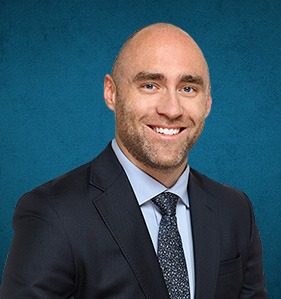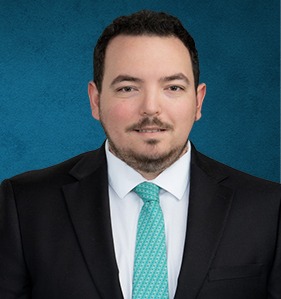CALL (800) 863-5312 FOR A FREE consultation with our medical malpractice lawyers
According to Johns Hopkins patient safety experts, about 250,000 deaths occur in the US annually due to diagnosis errors. Medical malpractice claims and lawsuits allow patients to recover medical malpractice compensation from harmful actions resulting in sub-par treatment or injury.
Injuries can happen any time, anywhere. When people get injured, they trust doctors or nurses to provide them with proper treatment to heal their injuries. Sometimes, however, medical providers make mistakes, causing you to suffer new or worse injuries because of their care. If you or a loved one has been injured by a doctor or nurse, call Zinda Law Group at (800) 863-5312 for a free consultation with a medical malpractice lawyer. Our nationwide medical malpractice lawyers can evaluate your case and help you seek maximum compensation.
What Is Medical Malpractice?
Medical malpractice occurs when a medical provider provides treatment that does not meet professional standards, causing injury to the patient. Common examples of medical malpractice include:
- A failure to diagnose or a misdiagnosis
- Unnecessary surgery or surgical error, such as operating on the wrong body part
- Prescribing improper medication
- Ignoring or misreading test results
- Failing to order necessary tests
When medical malpractice occurs, the patient can file a lawsuit against the doctor and other parties responsible for their treatment. For example, if a doctor refers a patient to a surgeon for surgery at a hospital, and the surgeon makes an error, the patient may be able to sue the doctor, surgeon, and hospital for their injuries.
Medical malpractice lawsuits are medical negligence lawsuits. This means that to successfully bring a medical malpractice lawsuit, the patient will need to prove the medical provider or doctor owed the patient a duty, the doctor breached that duty, and that doctor’s breach harmed the patient.
In the medical profession, a doctor owes a duty to their patient to follow generally accepted professional standards. These professional standards are ones based upon scientific evidence published in medical literature and recognized by the medical community. If a doctor or other medical provider fails to follow these standards, the patient may bring a medical malpractice claim against them.
If you were a victim of medical malpractice, you must be able to prove four things:
- Your healthcare provider owed you a professional duty of care.
- Your healthcare provider breached the standard of the duty of care.
- You received a compensable injury.
- Your healthcare provider’s breach caused your injury.
What To Do If You Experience A Medical Malpractice Incident
If your doctor did not treat you properly or failed to treat your injuries, you may be wondering what to do after a medical injury caused by their malpractice. If you were injured by a medical provider, you should seek other treatment for your injuries first, and then seek legal assistance as soon as possible.
1. Seek Medical Attention
It is important to see another doctor who can determine the extent of your injuries and provide proper treatment. You should seek medical attention as soon as possible to ensure your injury does not worsen or remain untreated.
When you see a new doctor, they will first ask you questions about how your injury occurred. Be honest with your doctor so that they can fully understand what kind of injuries you may have and how to best treat them. Your doctor will perform a physical examination to look for any external injuries. Your doctor may also want to order tests or scans, such as x-rays and MRIs; these look for internal injuries, such as internal bleeding or broken bones.
Once your doctor determines what injuries you are suffering from, they will prove you with a treatment plan. This may include taking medication, wearing a cast or sling, or following up with other doctors or therapists. It is important you follow your doctor’s treatment plan precisely so that your injuries heal.
2. Document the Incident
If you were hurt by a doctor during treatment, document the incident in case you choose to contact a medical malpractice attorney in the future. You may want to document:
- Why you chose to see a particular doctor; for example, did someone refer you?
- What pain you were in that you chose to see a doctor
- When your first visit was to this doctor
- Any conversations with the doctor you can remember
- Your injuries after treatment
- Any witnesses to the treatment
You can document this information by writing it down in your cell phone or on paper. You may also document this information by taking photographs. This information may help you or a medical malpractice lawyer should you choose to file an injury lawsuit.
3. File a Complaint
If you were injured by a medical provider, you may be able to file a complaint with your state’s medical board. You can search the Internet for your state’s medical board and follow the instructions on their website to file a complaint.
State medical boards accept complaints against doctors or other medical providers for acting improperly. Common complaints against medical providers arise from:
- Drug prescription errors
- Unnecessary or inappropriate treatment or surgery
- Not getting treatment after your condition changed
- Getting released from the hospital too soon
- Not getting proper instructions upon release from the hospital
In most states, filing a complaint with your state medical board is free. In others, you may have to pay a small fee to file a complaint. If you have questions on how to file a complaint, contact a medical malpractice lawyer who can provide you with more information.
Your complaint will be reviewed by the state medical board, and they will determine whether the doctor should be disciplined for their actions. If the doctor is disciplined, this becomes part of their permanent record and will be publicly available for viewing online.
4. Seek Legal Assistance
Speak with a medical malpractice lawyer who can help you seek compensation for your injuries. A medical malpractice lawyer will be able to use the information you documented to evaluate your case and recommend how to proceed. Should you choose to seek compensation for your injuries, a medical malpractice lawyer can help build your case.
CASE RESULTS
Do I Need A Medical Malpractice Lawyer?
It is important to hire an experienced medical malpractice lawyer because nationwide medical malpractice lawyers who have handled similar cases to yours are best suited to gather evidence, identify the parties involved, and help you seek compensation. The success of your case more or less depends upon how well your case is constructed and presented to the insurance companies and in court if a settlement cannot be reached. Some reasons why a Zinda Law Group medical malpractice lawyer will be most qualified to help you reach these goals are:
1. Gathering Evidence
Your experienced medical malpractice lawyer will know what kinds of information you will need to know to best help your case. Your lawyer will likely request all the information you documented after the incident. They can also request information from other parties involved, such as:
- Documents related to the rules medical providers must follow
- Insurance documents
- Medical notes, charts, or other documents related to your treatment
Your lawyer can also help you depose those involved in your negligent treatment. At a deposition, your lawyer will ask a series of questions to a witness sworn under oath to tell the truth. This happens outside of a courtroom and allows a party to gather information to help their case.
Other parties involved may also want to depose you. Your lawyer can prepare you for this deposition. It is best to contact a medical malpractice lawyer so that they will have time to advise you carefully and meticulously gather the proper evidence to help you build a strong case.
2. Identifying Parties
Medical malpractice cases can become very complicated very quickly. This is because these cases may involve:
- Complex medical issues
- Multiple health providers or facilities
- Multiple witnesses
Your lawyer can help you determine who can be held responsible for your injuries. You may be able to hold the doctor, nurse, and hospital responsible for your injuries; if you were referred to a particular doctor for further treatment by a different doctor, you may be able to hold the referring doctor liable for your injuries. Your attorney can help you locate all parties involved and seek compensation from each one of them.
3. Recovering Compensation
In medical malpractice lawsuits, you can seek both economic and noneconomic damages. Economic damages are monetary amounts that can be calculated; this may include lost past and future earnings, medical or ambulance bills, and other calculable expenses. In cases where medical malpractice injuries are severe, economic damages can be in the millions.
Noneconomic damages are those which cannot be calculated; these include monetary awards for pain, suffering, emotional distress, or the loss of enjoyment of life. States place caps on the amount of non-economic damages that may be awarded to a plaintiff. In most states, noneconomic damage awards may not exceed $250,000.
What Kinds of Mistakes Can Amount to Medical Malpractice?
The following acts can constitute examples of medical malpractice and common medical errors:
- Making a surgical mistake
- Failing to monitor a patient
- Failure to respond to a patient’s call
- Failure to properly diagnose a patient
- Failing to take proper care of the patient
- Administering the wrong type of medication
Liability for Medical Malpractice
Depending on the state, the following are examples of healthcare providers who victims or their families can sue:
- Nurses
- Dentists
- Physicians
- Physical therapists
- Occupational therapists
Not only can healthcare providers be held liable for medical malpractice, but a hospital can be held liable for the negligence of its employees through the legal concept of vicarious liability, which holds employers liable for the negligent actions of their employees.
For the most part, a hospital is not responsible for a doctor’s medical malpractice if the doctor was not an employee of that hospital; most doctors are independent contractors and not employees. There are some exceptions, so it would be wise to consult with a medical malpractice lawyer from Zinda Law Group to understand better whether your case is likely to be successful.
Nursing malpractice happens when a nurse dispenses the wrong prescription or otherwise does not fulfill her duties in a way that a competent nurse in the same situation would. When a nurse’s negligence injures a patient, it can be quite difficult to sue that nurse, but it is not impossible. Sometimes the hospital that hired the nurse can also be held financially responsible for its negligence.
Medical Malpractice Damages
Awards of general and specific damages ensure that the plaintiff receives the maximum amount of compensation if injured by a healthcare provider. In extreme cases, you might even receive punitive damages. You will not likely receive medical malpractice compensation from the hospital but rather from the individual who caused the harm in the first place.
General Damages
General damages (sometimes called non-economic damages) are not easily calculated and include more subjective kinds of harm, like pain and suffering. Substandard medical care can cause mental and emotional harm as well as physical pain and discomfort. These injuries deserve to be compensated with general damages.
Besides pain and suffering, examples of general damages include:
- Permanent disfigurement
- Loss of companionship
- Reduced quality of life
- Physical and mental pain
- Physical impairment
Certain factors weigh more than others when determining the amount that should be awarded. Your lawyer will know best how to present and support your claim for maximum compensation.
Special Damages
Special damages (sometimes called economic damages) are easy to calculate and prove by receipts of paid invoices. Examples of special damages that can be collected include:
- Lost income
- Lost earning capacity
- Cost of medical treatment made necessary by the healthcare provider’s mistake
- Other financial losses
Lost income and lost earning capacity include not just the amount of earnings you’ve lost but also what you stand to lose in the future. Besides the past and present damages that can be collected, there may be future damages and medical bills included as well.
Calculating the values of these usually requires hiring expert witnesses. Future loss compensation is not available in all states, though, and some bar the inclusion of future medical expenses altogether.
Medical malpractice cases sometimes involve injuries that require a lifetime of medical care. To ensure you receive the maximum medical malpractice compensation, consider working with Zinda Law Group’s medical malpractice attorneys.
Punitive Damages
Lastly, punitive damages are meant to punish a physician or medical facility for conduct that is seriously problematic, such as a case in which a doctor intentionally botched a surgery, requiring the patient to need another surgery. Punitive damages are rarely awarded in medical malpractice cases.
Statute of Limitations for Medical Malpractice Claims
All states have set deadlines for when a patient may file a civil claim, known as statutes of limitations. Most states have special provisions regarding the time limits for minors to file medical liability and malpractice claims. Please consult the medical malpractice attorneys at Zinda Law Group to know more about what time constraints are imposed in your state.
State Limitations on Damages
Several states have passed laws that limit or cap the amount of general damages a successful plaintiff can be awarded in a medical malpractice lawsuit. These caps vary from state to state and sometimes include exceptions for catastrophic harm or death cases. Talk to a medical injury attorney at Zinda Law Group for details on the law in your state.
California, for example, places a cap on general damages for medical malpractice cases, limiting recovery to $250,000. Only one $250,000 recovery is allowed in wrongful death cases. However, California has no limit on special damages, including compensation for past and future medical care, loss of past earnings, and diminished future earning capacity.
The amount you can recover after being hurt by a doctor depends on many complicated factors, so it would be helpful to consult medical malpractice lawyers from Zinda Law Group. We can give you a clear answer concerning the circumstances of your case.
Contact Zinda Law Group’s Medical Malpractice Lawyers
Zinda Law Group believes that anyone suffering from medical malpractice should never have to worry about their ability to afford excellent legal representation. We offer 100% free case evaluations, and you will pay nothing unless we achieve a favorable judgment or verdict for your medical malpractice case: it’s our No Win, No Free Guarantee.
A medical malpractice lawyer from Zinda Law Group will work hard to prepare your case and fight for you. Contact us at (800) 863-5312 today to schedule a free consultation and learn how we can help if you or a loved one has been a victim of medical malpractice. Together we can build a better case that will help you recover compensation from the doctor or nurse whose malpractice injured you.
Meetings with attorneys are available by appointment only.
Our Awards
AWARDED TO JOHN C. (JACK) ZINDA BY THE NATIONAL TRIAL LAWYERS ASSOCIATION (2016-2020)
AWARDED TO JOHN C. (JACK) ZINDA (2009, 2011-2012, 2014-2021), & NEIL SOLOMON (2020-2021)
AWARDED TO JACK ZINDA (2016-2020)
LIFETIME MEMBERS JOHN C. (JACK) ZINDA


























